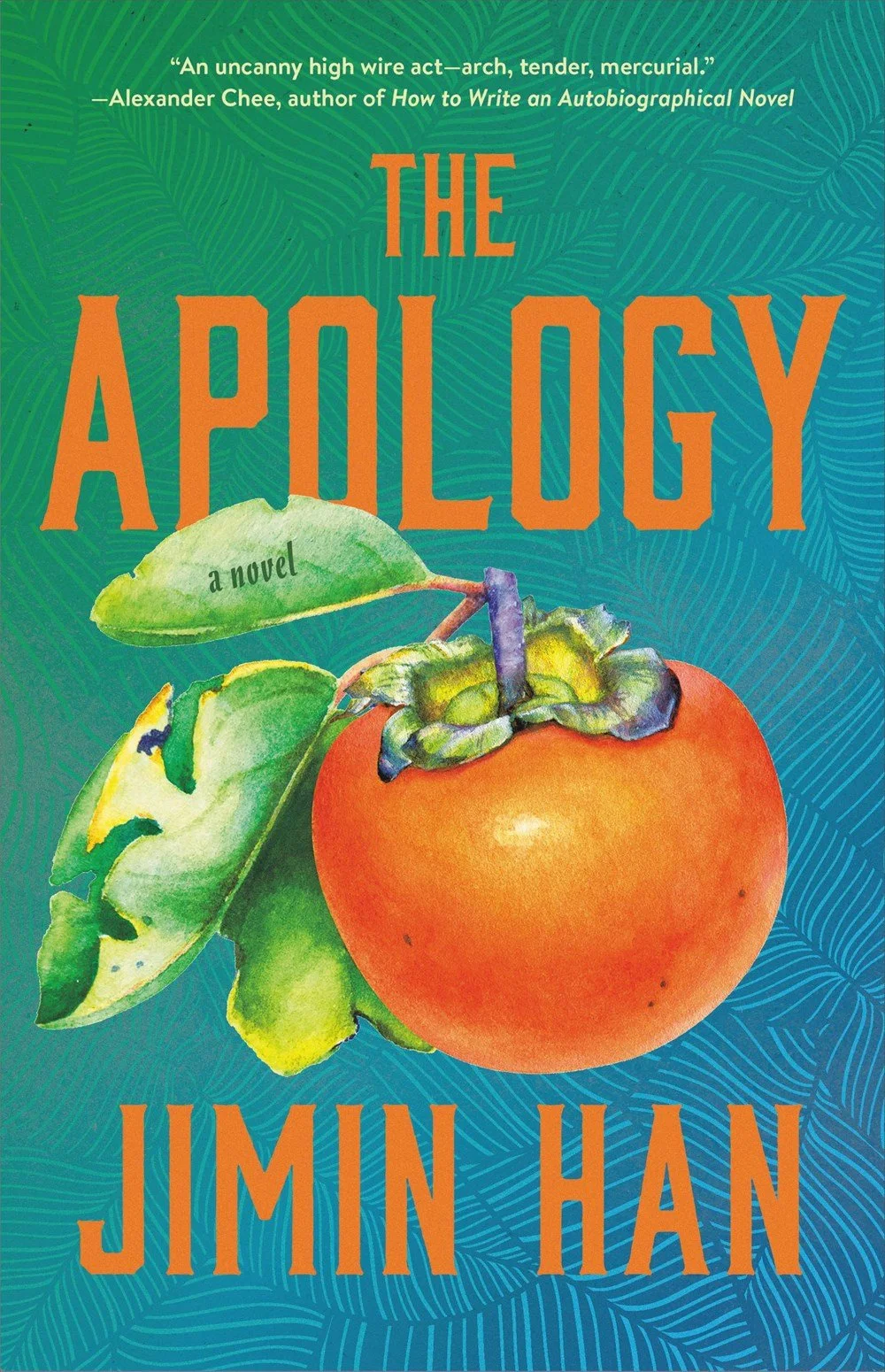The Apology by Jimin Han
Review of The Apology by Jimin Han
The Apology by Jimin Han (2023). Published by Little, Brown, and Company.
If you’re new here, and stumbled upon this blog through the mythical powers of the Internet, welcome! I know a lot of visitors to my website are people who randomly come upon this website through search engines like Google, but I also do have a lot of visitors who come back. Regardless: my name is Ashley, and I started this blog in order to keep track of everything I’m coming across in the world.
For three years I worked professionally as a film critic, and while going to all of the film festivals and interviewing directors and actors was cool for a while, but I wanted to reclaim my time and watch movies I wanted to watch. Sometimes watching all of the new releases is great, and behind ahead of the curve, but I feel like I was falling so behind on movies I was genuinely excited about.
So I quit and decided to focus on this blog, and fell back more into literary criticism. I also randomly fell into a period of unemployment because of unexpected circumstances, and I took a long and hard look at my finances and realized I had enough to take time off. I did end up doing that, traveled for a bit, applied to jobs, and found myself working on the blog now more than ever.
Lately, when I go to the library, I’ve just been going off of vibes when picking out what to read. I have a knack for being able to find international literature by staring too long at the spines, and whenever I find a book from a publisher I like, I tend to grab it off of the shelf to see if the synopsis is something that appeals to me.
I had heard of The Apology before, but never had picked it up. I read so much that I’m often running off of vibes or trying to get through an advance copy before it’s published, so this book was one I never had the chance to get to because it was not on my radar. But on that fateful February day, somewhere in Maryland, I saw the spine of this book and decided it was time.
Time to get into the review!
A fateful decision decades ago comes to haunt one Korean woman, especially after she confronts her death while abroad.
Our main character in this novel is Jeonga, who has lived quite a long, financially comfortable life. She is over a century old at the start of the novel, although we begin with her end. Despite living in South Korea, where she was born and raised, she came to the United States quickly for reasons we come to understand more throughout the novel. This was kickstarted by a letter she received in the mail back in Korea.
She dies during that visit, having been hit by a car. But from that moment on, we go into the past as she reflects on her life. She was born during Japanese colonialism in Korea, when it was still a unified peninsula, just occupied by a foreign power, and we see how complicated her familial relationships were.
One of her big traumas is that her sister, Seona, decided to leave the family after some conflict to elope with her lover. At the cusp of the Korean War, she ends up going to North Korea, which means the family has been fragmented forever, with the sisters like Jeonga wondering what happened to her beloved sister.
It doesn’t help that she has more friction with her remaining sisters, and they have a status to keep. Jeonga marries, although she outlives her husband (more on that when she wanders through purgatory as a ghost), something else big is going to happen involving her now pregnant daughter-in-law.
In order to protect the family name, Jeonga makes a decision that curses the family, sending away her daughter-in-law. This creates a ripple effect that is what ultimately leads her to come back to the United States, especially when she learns something involving her sister is involved.
This is a novel that’s kind of difficult to explain in a summary for me, as I want to avoid spoilers and I feel like how interconnected the above plot points are don’t offer a ton of wiggle room.
Regardless, this is a novel where you’re not really going to sympathize with the main character (Jeonga). Some of the decisions she makes and the way she acts is not exactly ideal for the situation at hand, which, in some ways, is unfortunate because a lot of this is avoidable. We wouldn’t have a novel if she had made the right decisions, but it can be frustrating with her at times.
Overall Thoughts
I have complicated feelings towards this novel. It reminded me of Joseph Han’s Nuclear Family, which I was also lukewarm about. Both are solid novels, but I feel like they’re not within my taste/interests, which is why I’m more apathetic towards them.
I was most interested in Jeonga’s life before she made the fateful decision involving her son and daughter-in-law, and everything after I was less interested into the extent where I wasn’t compelled by it. The writing itself is good, but I wanted to know more about her sister, and we only really see her towards the end of the novel.
Regardless, I can see why someone else might love this novel more than I did, so give it a chance if it interests you! Taste is so incredibly subjective, so what I might not care for you could love. And neither of us are wrong in the end because of that subjectivity.
Follow me below on Instagram and Goodreads for more.


![Jeju-do (제주도) is one of those places that reminds you of how stunning the world is
[7.12.2024 부터 7.14.2024 까지]](https://images.squarespace-cdn.com/content/v1/5ea1f794501b7153b29e7cd7/1721033601522-554E76HR01JUHDWZBJ1I/image-asset.jpeg)









